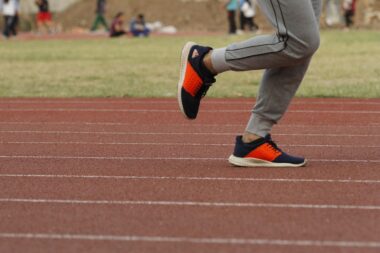Nutrition Myths and Facts for Young Marathon Runners
Young athletes preparing for marathons often encounter numerous nutrition myths that can mislead their dietary choices. One common myth is the belief that consuming excessive amounts of protein is essential for building strength. While protein is important for muscle repair, an average young runner typically needs around 1.2 to 1.4 grams of protein per kilogram of body weight. Instead of focusing solely on protein, runners should aim for a balanced diet that includes carbohydrates, healthy fats, vitamins, and minerals. Another myth lies in the idea that young runners should avoid fats altogether. Healthy fats, like those from avocados and nuts, play a crucial role in providing energy and supporting overall health. It’s also important to remember that not all carbohydrates are created equal. Whole grains, fruits, and vegetables offer necessary energy for long runs, while sugary snacks provide quick energy but may lead to crashes. Lastly, staying hydrated is key. Young runners should drink water regularly and consider electrolyte drinks during longer training sessions. Understanding these facts helps shape better eating habits, ensuring that young runners perform optimally during their marathons.
Another myth prevalent among young runners is the belief that skipping meals is a good way to lose weight or enhance performance. In reality, this can severely impact their training and recovery. Young marathon runners require consistent energy intake throughout the day to sustain their performance and support growth. Those who skip meals often find themselves fatigued and unable to keep up with training regimens. It’s crucial that young athletes consume nutrients at regular intervals, especially complex carbohydrates, healthy fats, and proteins, to support sustained energy release. Snacking with wholesome options like fruits, yogurt, or whole grain toast can be a great way to maintain energy levels. Moreover, some young runners believe that drinking energy drinks during training enhances performance. While these beverages can provide a boost, they often contain high levels of caffeine and sugar, which might not be appropriate for young athletes. Staying with water as the primary source of hydration is often best. It’s also important to read nutritional labels, as many products marketed to athletes have unnecessary additives. Knowledge about proper nutrition equips young runners for better training outcomes and helps them achieve their marathon goals without compromising their health.
Understanding Nutritional Needs
Understanding the nutritional needs of young marathon runners is essential for optimizing their performance. Carbohydrates are the primary fuel source for runners, particularly during endurance events. Young athletes should aim to fill their plates with whole grains, fruits, and vegetables. These foods not only provide energy but also offer essential vitamins and minerals necessary for overall health. Portion sizes play a significant role; overlooking this can lead to under-fueling or over-fueling, both of which can adversely affect training. Educating young marathon runners about appropriate portion sizes can support maintaining an ideal weight for their body type. Young athletes should also prioritize post-run nutrition, which aids recovery. Consuming a balance of carbohydrates and proteins within 30 minutes post-exercise supports muscle recovery and replenishes glycogen stores. A simple smoothie or a bowl of oatmeal with fruit and nuts can be an ideal recovery meal. In addition, planning meals around their training schedule ensures they are adequately fueled prior to running sessions. Engaging in teamwork during meal planning can foster collaboration among young runners, helping them find enjoyable foods that fit their training requirements.
Another frequently overlooked aspect of nutrition for young marathon runners is micronutrients. Vitamins and minerals play a pivotal role in energy production, muscle contraction, and recovery. Iron, calcium, and vitamin D are particularly essential for young athletes as they contribute to bone health and oxygen transport in the body. Insufficient intake of these nutrients could lead to fatigue and decreased performance. For instance, iron deficiency can lead to anemia, which is particularly concerning for endurance athletes. A young runner’s diet can be diversified by including foods like leafy greens, fish, dairy, nuts, and beans, ensuring they meet their micronutrient needs. Consulting a nutritionist or dietitian can also provide tailored advice, especially if dietary restrictions exist. Supplements can seem appealing, but food sources are the best way to obtain micronutrients safely. Furthermore, young runners should be encouraged to try a variety of foods to keep their diet interesting and nutritious. This approach not only boosts their performance but also nurtures healthy eating habits that can last well beyond their running careers.
Hydration Essentials for Young Runners
Hydration is another essential component in the preparation of young marathon runners. Many young athletes mistakenly assume that thirst alone is a reliable indicator of hydration needs. However, thirst may not always signal dehydration; therefore, a proactive approach is more beneficial. Young runners should develop a routine of drinking water regularly throughout the day, not just during training sessions. Dehydration can affect performance and recovery, making it essential to maintain optimal fluid balance. During longer runs, electrolyte drinks can be beneficial, but it’s crucial to choose those that do not contain excessive sugars. Young athletes can prepare homemade sports drinks using water, a pinch of salt, and natural fruit juices for flavor. It’s also advisable to monitor hydration levels by checking the color of urine; pale yellow typically indicates proper hydration, while darker shades can signal a need for more fluids. Furthermore, athletes should adapt their fluid intake based on weather conditions, as hot weather can increase sweat loss. By mastering hydration strategies, young marathon runners can enhance their endurance, performance, and recovery, leading to successful training and race days.
Meal timing is another crucial aspect young marathon runners should consider for optimal performance. Consuming meals at the right time can impact energy levels during training and races. For instance, eating a substantial meal four to six hours before a run allows time for digestion and helps maintain energy levels. On the other hand, consuming a light snack 30 to 60 minutes before a race can provide a quick energy boost without weighing them down. Options like bananas, energy bars, or toast can be ideal pre-run snacks. Proper timing also applies post-run; as previously mentioned, eating a meal containing carbohydrates and proteins within 30 minutes post-exercise significantly aids recovery. Developing a routine will help athletes learn what timing works best for them. Keeping a food diary can assist young runners in tracking their meals, snacks, and hydration, which contributes to refining their eating habits over time. Moreover, understanding their body’s response to different food types will help them make informed choices. These foundational practices in meal timing can support young marathon runners as they progress in their training and prepare for races.
Emphasizing Whole Foods
Young marathon runners should be encouraged to emphasize whole, nutrient-dense foods in their diet while minimizing processed options. Whole foods provide the essential macronutrients and micronutrients that support training and overall health, whereas processed foods can often contain unhealthy additives and refined sugars. Focusing on fresh fruits, vegetables, whole grains, lean proteins, and healthy fats helps not only in performance but also mental well-being. It is important for young athletes to develop a solid appreciation for cooking and meal preparation as well. Learning how to prepare meals allows for more informed choices when it comes to nutrition. Additionally, parents or guardians should be a part of this cooking process, which can foster familial bonds and a shared understanding of healthy eating. Dining together allows for discussions about nutrition and exercise, reinforcing the importance of the right diet for embarking on marathon training. Social interactions during meal preparation can reduce the stigma around healthy eating, making it a fun and engaging learning experience. By incorporating whole foods into their diet, young marathon runners can nurture lifelong healthy eating patterns, positively impacting their athletic pursuits.
Finally, creating a positive food culture among young marathon runners is essential for building healthy habits. Sharing experiences around nutrition and understanding its importance can foster a supportive environment for young athletes. Group discussions about what’s on their plates can spark interest in wholesome eating and encourage athletes to share their favorite healthy snacks and recipes. Schools and sports organizations can play an integral role by organizing workshops or events focused on nutrition. Such initiatives can promote knowledge about healthy eating and introduce young runners to nutrition professionals, helping them understand the science behind fueling their bodies. Furthermore, visibility is important; celebrating athletes who practice healthy nutrition can motivate others to follow suit. Allowing young runners to participate in meal planning and preparation encourages ownership of their dietary choices. This feeling of accountability can have a lasting impact on their approach to food. Cultivating a positive food culture will not only help young athletes in their marathon training but also set the stage for a lifetime of making informed and health-conscious dietary decisions.





